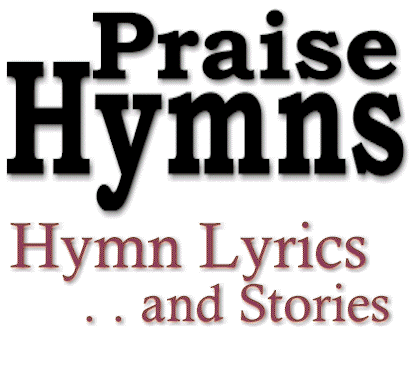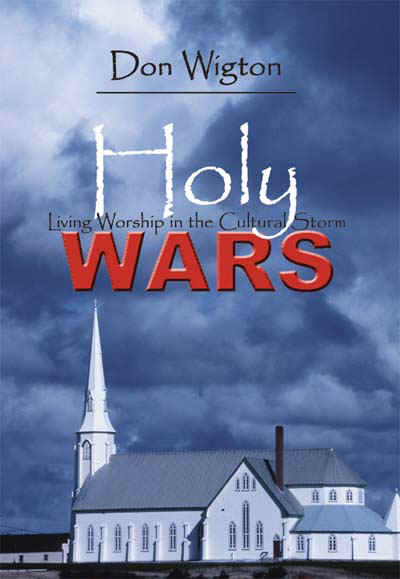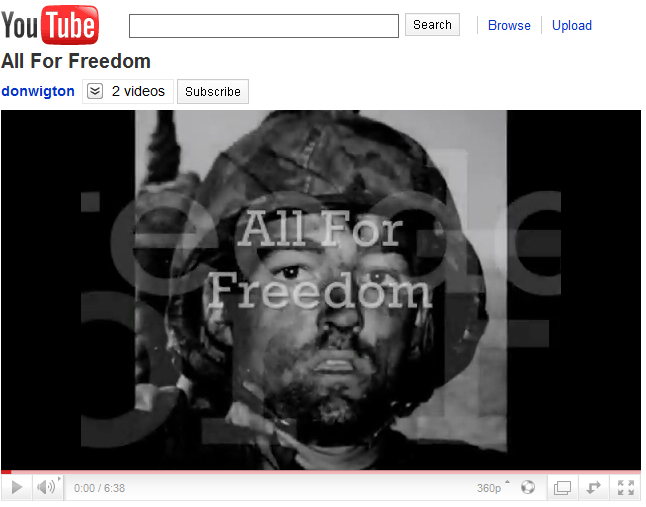
Praise and Worship Music to Bless God. . .
|
|
Angels We Have Heard On HighO Come All Ye FaithfulO Come, O Come Emmanuel
CLICK
HERE or call Author House @ 888.280.7715 for our new
comprehensive book on PRAISE AND WORSHIP . . .a new and exciting "must have" for every Christian who is seeking to worship God in the midst of the tempest of our modern world.
|
Music to touch your
spirit. . .
"I might
not be a religious man myself but I know good music when I hear it, and this is very
good! . . . I don’t think that I have ever given such high
ratings to so many songs before. But
the fact is that they are well deserved because the
music is amazing. Simply wonderful religious ballads and they
really get to your heart. . .everytime."
Fredrik Cole: Trax In Space
![]()
Angels We Have Heard On
High
Angels we have heard on high,
Sweetly singing o’er the plains;
And the mountains in reply,
Echo back their joyous strains.
Gloria in excelsis Deo,
Gloria in excelsis Deo.
Shepherds, why this jubilee?
Why your joyous strains belong?
Say what may the tidings be,
Which inspire your heavenly song?
Gloria in excelsis Deo,
Gloria in excelsis Deo.
Come to Bethlehem and see,
Him whose birth the angels sing;
Come adore, on bended knee,
Christ, the Lord, the newborn King.
Gloria in excelsis Deo,
Gloria in excelsis Deo.
Arrangement Copyright © 2000 Don Wigton
This lively instrumental arrangement
of this famous French Christmas carol is sustained by a percussive piano and acoustic
guitar. Over this the melody is carried by sweeping strings, flutes and oboes. “Glory
to God in the highest!” is the theme of this exhilarative hymn. As you listen to this
brisk rendition, you will be uplifted with the joy of Christ’s birth.
Song Story
This traditional French Christmas
carol (Les Anges dans nos Campagnes) is based on Luke 2:20 which reads:
“Then the shepherds went back again to their fields and flocks, praising God for the
visit of the angels, and because they had seen the child, just as the angel had told
them.” It was translated from French to
English by James Chadwick (1813-1882) and appeared in Crown of Jesus, 1862. The music, “Gloria (Barnes),” is a
French carol melody; arranged by Edward Shippen
Many times in the hustle and the
bustle of the Christmas season we forget to praise God who was made in our likeness in the
form of a baby. Luke tells us that the shepherds “returned glorifying and praising
God for all the things they had heard and seen.” The words “Gloria in excelsis
Deo” translate into “Glory to God in the highest.” The celebration of
Christmas is about glorifying God in exultant praise for what He has done for us.
It was for that reason that I decided to arrange this song in a way that would generate
excitement. Usually to accomplish this I will utilize bass and drums to give a song a good
beat. However, this song was going to be a part of our Christmas CD project “O Come
Let Us Adore Him.” Because I wanted it to have a Classical/Baroque feel I
specifically did not want to use a rhythm section in this collection of songs.
So, I had to get the percussiveness from somewhere else. I began by hammering away at the
piano (as I love to do!) Next I added picking acoustic guitars and the results were great!
On the bottom I utilized a sustained string double bass sound. Over the percussive rhythm
I laid swooping melodic strings as a contrast. The rapture of the piece is evident and we
pray that it lifts your spirits to reflect upon the excitement that is contained in the
Christmas story.
O
Come All Ye Faithful
O come, all ye faithful, Joyful and
triumphant,
O come ye, O come ye to Bethlehem;
Come and behold Him, born the King of angels;
O come, let us adore Him, O come let us adore Him,
O come, let us adore Him, Christ, the Lord.
Sing, choirs of angels, sing in exultation,
O sing, all ye citizens of heaven above;
Glory to God, all glory in the highest;
O come, let us adore Him, O come let us adore Him,
O come, let us adore Him, Christ, the Lord.
Yea, Lord we greet Thee, born this happy morning,
O Jesus, to Thee be all glory given;
Word of the Father, now in flesh appearing;
O come, let us adore Him, O come let us adore Him,
O come, let us adore Him, Christ, the Lord.
Arrangement Copyright © 2000 Don Wigton
John Wade, famous for his calligraphy,
wrote this marvelous praise hymn. Few Christmas songs are so potent in their ability
inspire the worship of Christ. The words, “O come let us adore him” have
inspired those who love Christ with heavenly thoughts for centuries. This instrumental
arrangement by Don, with its grand piano, robust French horn solo and luscious strings,
certainly lives up to the expectations of those who join to worship Christ.
Song Story
For years I used the chorus of this
praise hymn to inspire congregations to praise God as they sang of His marvelous works.
The phrase “O come let us adore Him” is not one that is limited to the
celebration of Christ’s birth. When contemplating the release of Christmas music,
this worshipful song was an obvious choice.
Its writer, John Francis Wade, who made his living copying manuscripts by hand, had a
knack of copying music. He was famous at the time for his calligraphy, but this one song
would put his work in the hearts of Christians forever. In 1750 Wade “slipped”
the hymn into a manuscript that he was copying for the English Catholic Church in Lisbon,
Portugal. Over thirty years later it was discovered and, in 1785, was sent to the
Portuguese chapel in London. When the Duke of Leeds heard it sung there he immediately
included it in the repertoire of his own singing group. This exposure lead to world-wide
attention and it eventually came to be known everywhere.
When preparing the instrumental arrangement for the Wigtune Christmas CD “O Come Let
Us Adore Him” I wanted to make sure that, as the title trac of the project, “O
Come All Ye Faithful” would be filled with drama and excitement. When I first played
it for Vanessa, though, she commented that it lacked the “Baroque feel” that
permeated the rest of the songs on the CD. I told her that it basically had the same
instrumentation that the other had, other than the addition of the French horn. When she
commented that it did not have the nylon-string acoustic guitar parts that were common in
the others I knew that I had to bring them up in the mix. After that, she said that the
“feel” was back. Now, the arrangement that is being presented for you has all of
the “Baroque” ambiance that Vanessa intended with the stout impact that I was
looking for. As the chorus is played contemplate on the words “O come let us adore
Him” as you ponder the miracle of His birth and the ramifications that God becoming
man has had in your temporal and eternal life.
O come, O come, Emmanuel,
And ransom captive Israel,
That mourns in lonely exile here
Until the Son of God appear.
Rejoice! Rejoice! Emmanuel
Shall come to thee, O Israel!
O come, Thou wisdom from on high,
And order all things, far and nigh;
to us the path of knowledge show,
And cause is in her ways to go.
Rejoice! Rejoice! Emmanuel
Shall come to thee, O Israel!
O come, Desire of nations, bind
All peoples in one heart and mind;
Bid envy, strife, and quarrels cease;
Fill the whole world with heaven’s peace.
Rejoice! Rejoice! Emmanuel
Shall come to thee, O Israel!
O come, Thou Dayspring, come and cheer
Our spirits by Thine advent here;
Disperse the gloomy clouds of night,
And death’s dark shadows put to flight.
Rejoice! Rejoice! Emmanuel
Shall come to thee, O Israel!
Arrangement Copyright © 1999 Don
Wigton
This 12th century Christmas hymn once
filled ancient cathedrals with praises to Christ with this lucid chanting tune. This
instrumental arrangement uses both modern and ancient instruments together to capture the
medieval feel of the times. Voices underscored by a distant cathedral organ are followed
by a soft guitar that supports a melodic cello overlaid by resonate ah’s. As the
piece builds with dynamic strings and piano you shall be drawn into the austerity of
Christ.
Song
Story
This beautiful Christmas praise hymn
ushered from the great cathedrals of the middle ages. It is an ancient song both in music
and words, using plainsong (or chant melodies) which was the musical style of the middle
ages. The words originally developed without the chorus as a series of liturgical phrases
used during the Advent season in the Church. Each stanza emphasizes a different name for
Christ. Jesus is Emmanuel (God with us): wisdom from on high; Desire of nations; Lord of
might; Rod of Jessee, Dayspring; and key of David. These profound descriptions of our
savior provide us with rich thoughts that fill our praises with somber reflections as we
consider His miraculous birth.
The words, from the 9th Century; were translated from Latin to English by
John Mason Neale in Mediaeval Hymns, 1851. Neale’s original
translation began, “Draw nigh, draw nigh, Emmanuel.” The music, “Veni Emmanuel,” is a 15th
Century French melody.
In making the arrangement I wanted to capture the feel that existed in an ancient medieval
cathedral while creating a sound that appeals to our world today. To emphasize antiquity,
I began the piece with a grand pipe organ with a wispy vocal ah’s hovering overhead.
As the organ slowly fades out a light acoustic guitar picks delicately over a deep string
drone bass. Soon a deep, lonely cello takes over with the familiar Christmas melody that
has enchanted Christians for centuries. Each verse builds as the strings progress
higher-and-higher in timbre, filled in with piano and B3 underneath. As the last chorus
softens to a hush, distant voices resume the melody, reminding us of the primitive choirs
that filled the vastness of Middle Age cathedrals with the reverberate chants so common in
the day.
The austerity of the arrangement demonstrates the marvelous significance of Christ’s
birth as God came to mankind in the form of a baby in order to redeem them from sin. We
sincerely pray that you will be impressed with the majesty of God incarnate as you listen
to this song.
![]()
 is a subsidiary of Wigtune Company, formed as a
service to the body of Christ. Our vision is to encourage scriptural worship in the
Church by offering free praise music and hymns performed in a contemporary manner along
with a free on-line worship study book for personal devotions, Bible study groups, Sunday
schools, pastors, music ministers and ministry training. The worship study
book lends theological and historical support to the use of traditional Christian
hymn-singing in conjunction with praise chorus singing. Click on one of the links below to
enter into the Wigtune resource that interests you !
is a subsidiary of Wigtune Company, formed as a
service to the body of Christ. Our vision is to encourage scriptural worship in the
Church by offering free praise music and hymns performed in a contemporary manner along
with a free on-line worship study book for personal devotions, Bible study groups, Sunday
schools, pastors, music ministers and ministry training. The worship study
book lends theological and historical support to the use of traditional Christian
hymn-singing in conjunction with praise chorus singing. Click on one of the links below to
enter into the Wigtune resource that interests you !
![]() Vision Statement
Vision Statement ![]() Wigtune Story
Wigtune Story ![]() Free On-Line Worship Studybook
Free On-Line Worship Studybook
![]() Radio: Listen to Wigtune music on live Internet
radio
Radio: Listen to Wigtune music on live Internet
radio
![]() Testimonials: What they are saying
about Wigtune Music
Testimonials: What they are saying
about Wigtune Music
![]() Bible
Study Helps, a Multitude of Christian Links and Other Goodies
Bible
Study Helps, a Multitude of Christian Links and Other Goodies
![]() Where's
Wiggy? - List and Links to Christian Organizations
Where's
Wiggy? - List and Links to Christian Organizations
Copyright © 1999 Don Wigton. All rights reserved.
Patriotic Hymns 1
| Patriotic Hymns 2
Christmas Hymns
1 | Christmas Hymns 2 | Christmas
Hymns 3 | Christmas Hymns 4
Hymns 1 | Hymns 2 | Hymns 3 | Hymns
4 | Hymns 5 | Hymns 6 | Hymns 7 | Hymns 8 | Hymns
9





